ESG: Environment
Reducing our impact on the planet

Key targets

Net zero by 2035 for direct and indirect emissions

Building energy consumption reduction of 20% per sq. ft by 2030
Highlights
We have made strong progress in 2024/25. Fundamental ESG principles – to reduce our impact on the planet, promote equality and fairness, and increase transparency around our operation – are now embedded in our business model, management objectives and company culture as we deliver for all stakeholders. Responsible delivery remains fundamental to our strategy and reflects our core values of ‘doing the right thing’ and ‘delivering for customers’.

A 38% reduction of carbon per parcel since our 2021/22 baseline.

Continued to add more zero-emission. In 2024/25, we delivered ~3 million parcels by electric cargo (e-cargo) bike or electric vehicle (EV), reducing air and noise pollution as well as helping with congestion on the roads

100% renewable electricity in operations
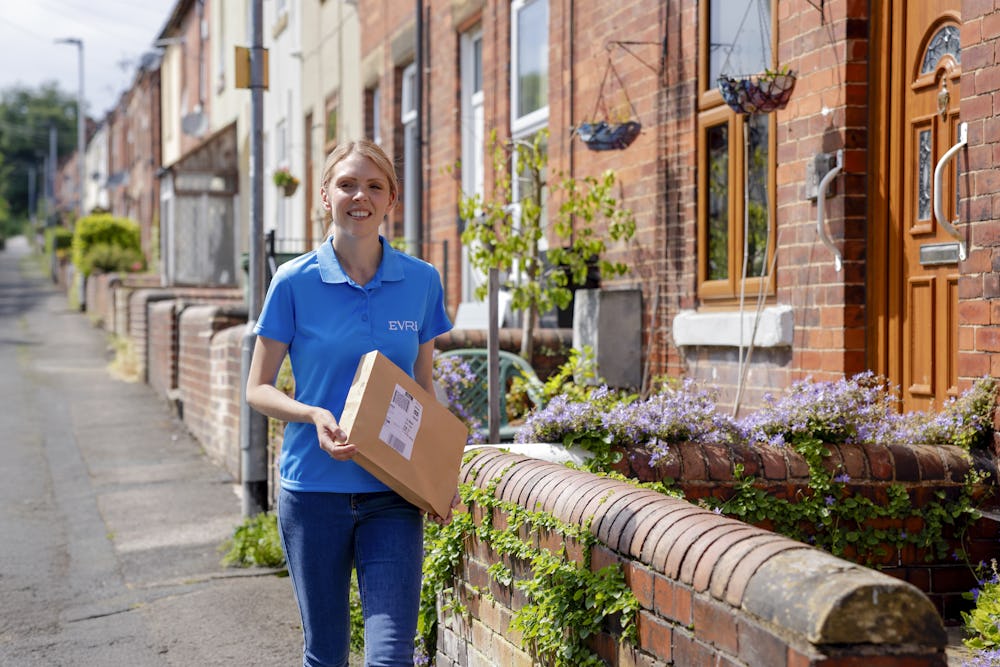
Carbon data
Using the latest technology, we’re continually measuring and reviewing our carbon emissions. We categorise these into three ‘Scopes’ – a method developed by the most widely used global accounting tool, the Greenhouse Gas Protocol. Scopes 1 and 2 cover direct and indirect emissions resulting from business operations, while Scope 3 includes all other indirect emissions that are part of our value chain but lie outside standard operations. By our calculations, the total CO2e per parcel is currently 346g CO2e.
| Scope | 2024/25 (tCO2e) | 2024/25 (kg CO2e per parcel) |
|---|---|---|
| ScopeScope 1 | 2024/25 (tCO2e)77,333 | 2024/25 (kg CO2e per parcel)0.096 |
| ScopeScope 2 - Location Based (LB) | 2024/25 (tCO2e)6,416 | 2024/25 (kg CO2e per parcel)0.008 |
| ScopeScope 2 - Market Based (MB) | 2024/25 (tCO2e)0 | 2024/25 (kg CO2e per parcel)0.000 |
| ScopeScope 3 - All categories reported | 2024/25 (tCO2e)201,999 | 2024/25 (kg CO2e per parcel)0.250 |
| ScopeTotal S1, 2 & 3 (LB) | 2024/25 (tCO2e)285,749 | 2024/25 (kg CO2e per parcel)0.354 |
| ScopeTotal S1, 2 & 3 (MB) | 2024/25 (tCO2e)279,333 | 2024/25 (kg CO2e per parcel)0.346 |
| ScopeScope 1 and 2 total (MB) | 2024/25 (tCO2e)77,333 | 2024/25 (kg CO2e per parcel)0.096 |

Fleet
We have continued to add to our low-carbon first-mile fleet. 207 Biomethane Compressed Natural Gas (Bio-CNG) tractor units are now in service, bringing the total to more than 50% of our core tractor unit fleet. Each Bio-CNG unit reduces CO2 emissions by up to 90% when compared to an equivalent diesel vehicle. Other bio-CNG benefits include reductions in air pollution impact, such as less NOX, less particulate matter, and they’re also 50% quieter than diesel equivalents.
Alternative fuel exploration is ongoing, and we use HVO (hydrotreated vegetable oil) fuel as standard at our Brooklands depot, which reduces emissions ~80% when compared to an equivalent diesel vehicle. In 2024/25 continued to grow our electric van fleet with EVs accounting for over 50% of our core van fleet.
We have updated our company car policy so that all new cars must be hybrid or electric, and to support this transition for colleagues, we have invested in further and upgraded charge points at our Rugby hub.
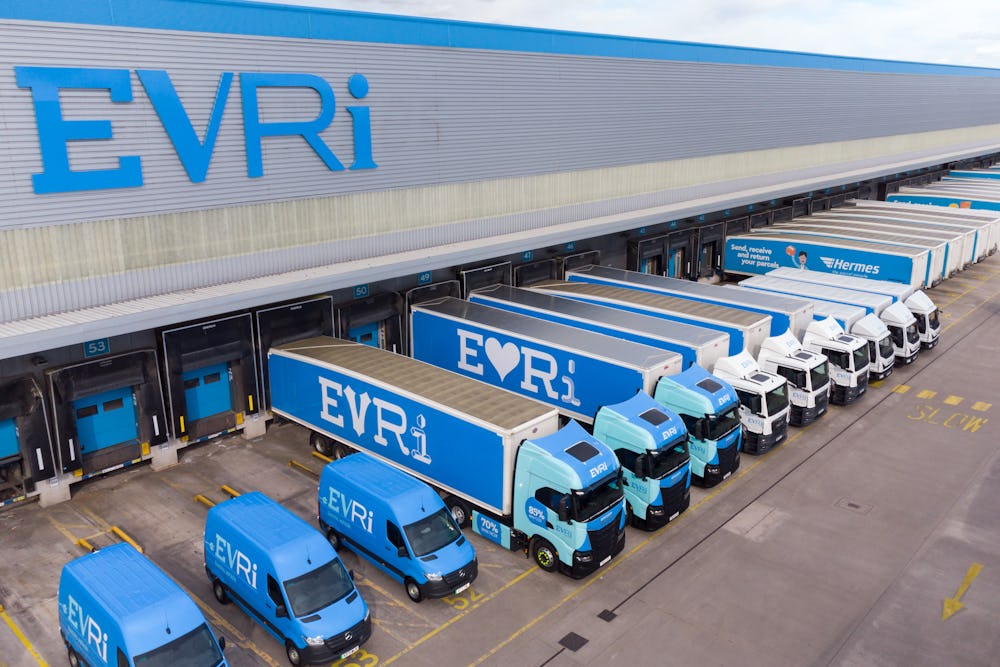
Buildings
Our infrastructure of hubs, depots and delivery units is a key part of our overall roadmap to become a low-carbon delivery business. We have already converted 100% of our purchased electricity to REGO-backed (renewable energy guarantee of origin) UK renewables in our whole operation.
Our flagship 55-acre ‘superhub’ at Barnsley, which opened in 2022, includes solar panels, rain harvesting and acoustic bunds to help reduce noise pollution. There’s also a substantial biodiversity area to support local wildlife, and we’ve planted more than 25,000 new trees and hedgerows.
This builds on other energy-saving features we’ve already got in place elsewhere in our network. For example, our Rugby hub features transparent roof sections to increase natural lighting and LED lighting throughout to save energy.
Products and Services
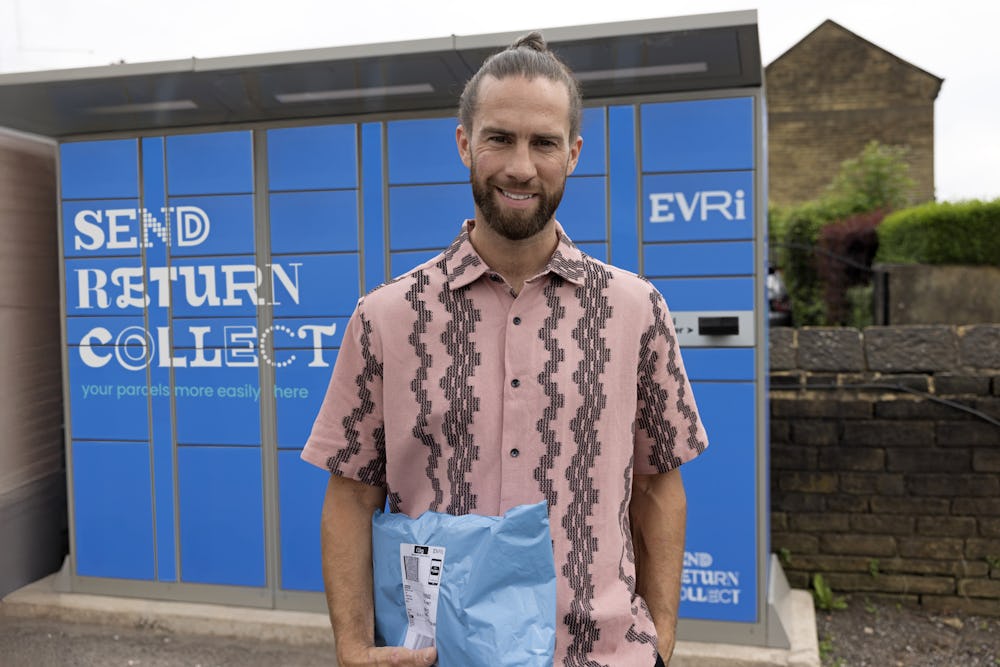
Divert to ParcelShop and Locker
Customers can divert their parcel earlier in its journey – before it’s even on the road. Out of home is a priority because delivery/collection via ParcelShops and Lockers could reduce a parcel’s carbon footprint by on average 34%*. *Based on data from March 2024 - February 2025, vs a standard courier delivery
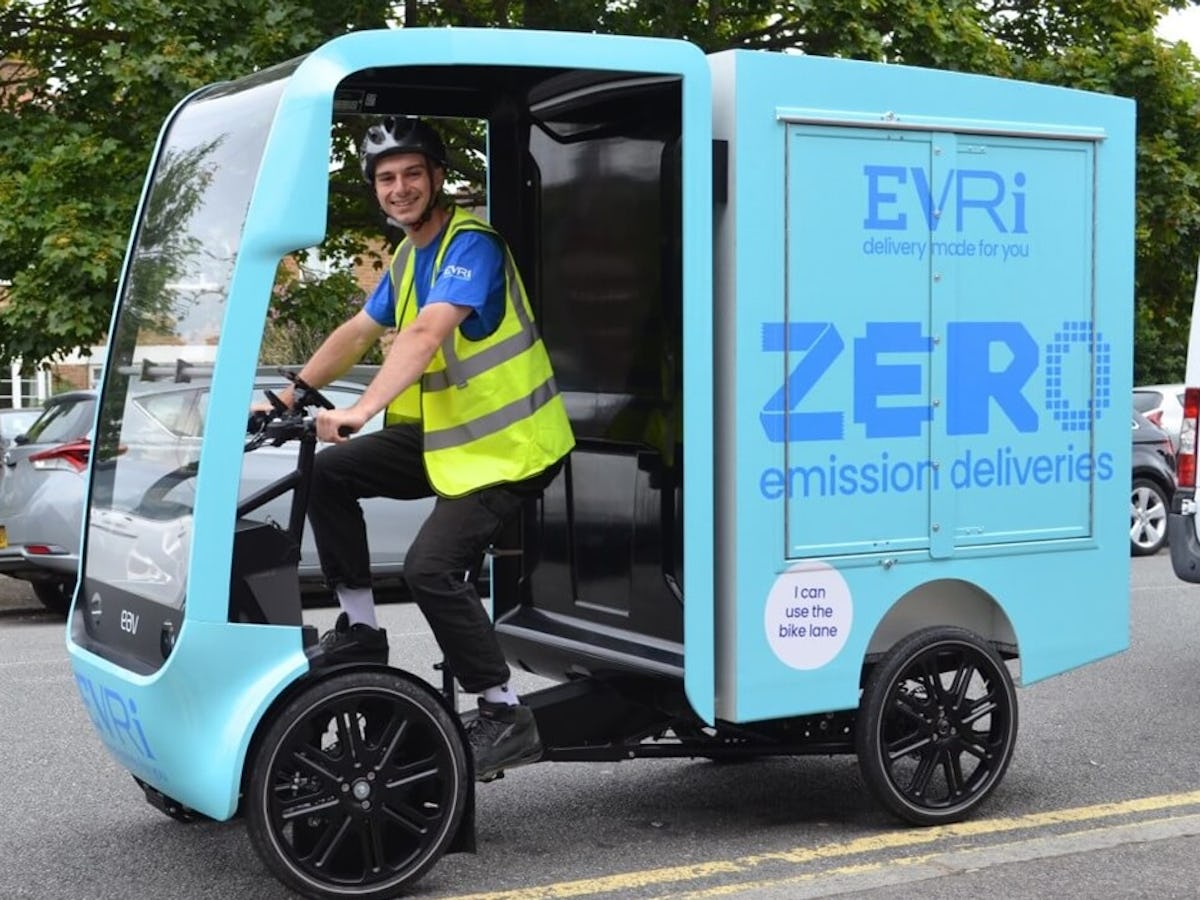
E-cargo bikes
We saw continued expansion of zero-emission final-mile delivery solutions, particularly in urban areas, and brought additional electric bikes into the fleet. In 2024/25, e-cargo bikes were used in various major UK locations, including Bristol, Edinburgh, London, Manchester, Oxford and Cambridge. In 2024/25, we delivered over 1,000,000 parcels this way. There will be a further roll-out of e-cargo bikes in 2025/26.
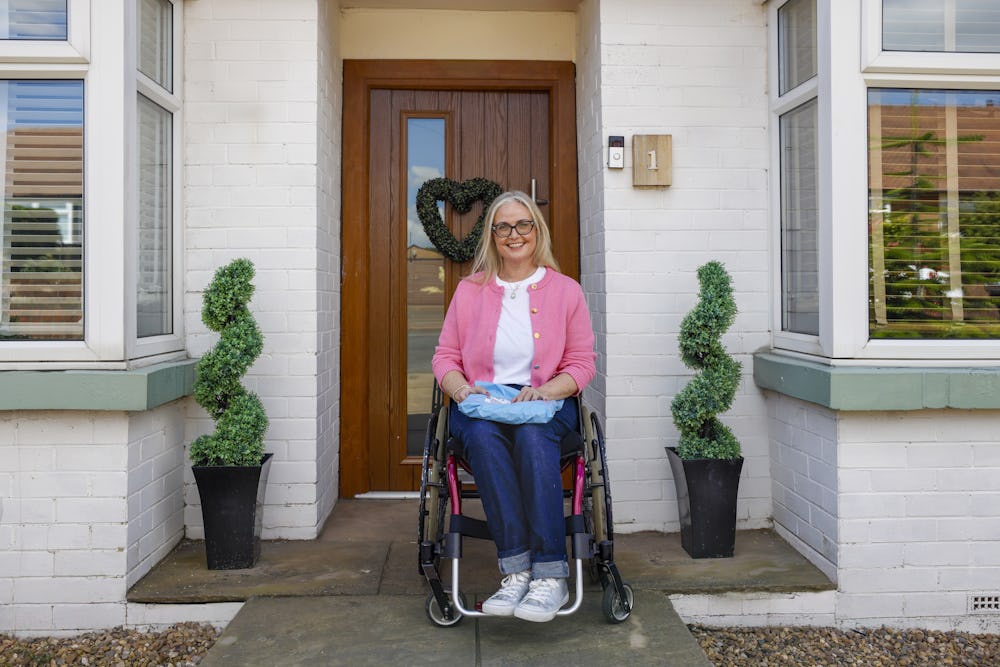
We’re continually improving first-time delivery success
Which means fewer delivery attempts and less time on the road. Through enhanced tracking capabilities, geofencing and ‘Parcel Vision’ technology, we've seen consistent growth in our first-time delivery accuracy metrics.